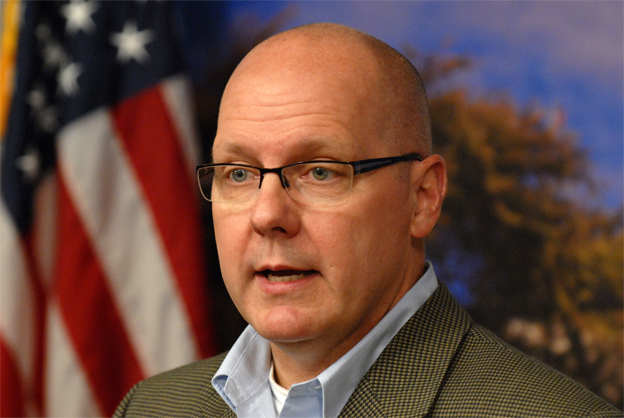

Perhaps now we can get to the bottom of this
Sen. Dave Thompson (R-Lakeville) is going to run for governor. He’s the second (former, in Thompson’s case) talk radio host to announce that he running for something in 2014. Tom Emmer, currently second banana to Bob Davis on KTLK, is running for the Sixth Congressional District seat being vacated by Michele Bachmann, who is rumored to be leaving to become a televangelist on The Imprecatory Prayer Hour.
Now that Thompson plans to run for statewide office, there is something he ought to clear up before he’s accepted by Republicans, never mind the electorate of the state.
That is: what exactly did Dave Thompson actually do to earn the approximately $70,000 he received in Republican Party of Minnesota funds from Tony Sutton? Thompson had “consulting contracts” with the party, but the record of what he did for the dough is shockingly thin.
Quoting from an earlier story at Left.MN:
When Sutton was forced to resign as party chair, a group of activists formed a committee to look into what happened; it conducted a review (not an audit, which would have been impossible for reasons that will become obvious as you read on) and issued a report on May 7, 2012. After the Report of the Republican Party of Minnesota Budget, Financial Controls and Oversight Committee was issued, Common Cause of Minnesota filed a complaint with the CFPDB. Actually, it filed a couple of complaints, one of which resulted in the $27,000 fine to the party (Tony Sutton and the then party treasurer were also fined $3,000 each) that the MNGOP is dealing with on the lay-away plan. (How’s that coming, anyway, Pat?) This fine resulted from the fact that the party did not disclose and report as debt some $600,000 in attorneys’ fees for the Emmer recount.
That is not what the findings at the link are about.
One of the other things disclosed in the oversight committee’s review was that Sen. Dave Thompson received about $70,000 in “consulting fees” for services claimed to have been rendered by Thompson in 2009 and 2010.
While apparently not raised directly in the CCM complaint, it did prompt some questions over at the CFPDB: 1) did Senator Thompson actually do work pursuant to the contracts or was it a gift or inducement to get him to run for office, and 2) were the services performed by Thompson in-kind contributions to state-level candidates, and if so, what was the value of these services to each candidate?
The Board’s conclusion? Based on the MNGOP’s record keeping, it is impossible to tell. Both the MNGOP and Sen. Thompson were given the opportunity to explain and justify the situation but did or could not.
Complicating matters is the fact that the claimed work was performed by Thompson for both federal and state candidates. But according to the Board, records and worksheets do not exist that would permit any kind of judgment about whether services were actually performed or how an allocation could be made between the federal and state MNGOP organizations (there are two, and you can get a really a good description of their relationship at the link to the findings).
This is, of course, a problem, not only for regulators and law enforcement, but also for members and contributors to the MNGOP. Well, and to anybody else concerned about what the MNGOP was buying with its money — if, indeed, anything. Among those who might be concerned are probably the fifteen counties, four law firms, a printing company and a couple of PR firms that the MNGOP stiffed in 2010 (scroll down to the very last page of the fourth restatement of the 2010 report to the CFB dated July 25, 2012).
But Tony Sutton was able to find the money to pay Dave.
Thompson’s contractual arrangements with the MNGOP are not privileged, in fact, if the GOP wanted to claim payments to Thompson as legitimate expenditure of party funds, there should be accounting records sufficient to permit an audit to verify the propriety of the expenditures. There are not.
My own inquiry about whether Thompson “worked hard for the money” was rebuffed.
The Campaign Finance and Public Disclosure Board did not have the jurisdiction to investigate whether payments were legitimate expenditures to Thompson (other than trying to find out whether they were properly disclosed and reported), because Minn. Stat. § 211B.12 was, until this past session, under the exclusive jurisdiction of the Office of Administrative Hearings. This is the statute that sets forth what legitimate political expenditures are.
The law was changed in the recently concluded legislative session; the CFB now has concurrent jurisdiction to investigate and enforce § 211B.12. Under the new law, the CFB could have investigated the matter further, taken Thompson’s testimony on the subject, made findings about the legitimacy of the claimed expenses, and levied fines if found to be inappropriate.
Missed it by that much.
Update: Thompson has said that the CFB “cleared” him, but that isn’t exactly what happened.
Thanks for your feedback. If we like what you have to say, it may appear in a future post of reader reactions.

